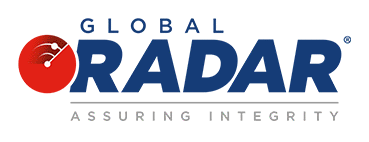Anti-Money Laundering Compliance Programmes – The Complete Checklist
Businesses must adhere to anti-money laundering regulations to prevent financial crime. Companies that fail to comply with anti-money laundering (AML) regulations may face harsh penalties in their respective jurisdictions. Let us help you evaluate your company’s AML compliance practices using this checklist.
Identity Verification
Identity verification is an important part of risk-based AML since it enables institutions to understand who they’re dealing with and what kind of risk they entail. Customer due diligence (CDD) duties, including enhanced due diligence (EDD) stages for higher-risk customers, should be prioritised in an AML checklist. CDD should be able to accurately determine a client’s persona information and the nature of the business in which the customer is involved.
Anti-Money Laundering Measures Based on Risk
Anti-money laundering and counter-terrorist financing legislation stipulates that institutions use a risk-based approach. This means that banks must implement AML procedures that are commensurate to the criminal risks they face, with higher-risk customers receiving more stringent customer due diligence, sanctions screening and transaction monitoring while lower-risk customers receive less stringent safeguards. In most countries throughout the world, the risk-based approach is at the heart of AML law, and AML checklists should be flexible enough to handle the scaling reactions that it needs.
Transaction Monitoring
To maintain continuing compliance, financial institutions should implement AML checklists, which involve monitoring customer transactions for suspicious activity based on their risk profile.
Reports of Suspicious Activity
AML checklists should include instructions for filing a suspicious activity report (SAR) with the proper financial authorities if money laundering is suspected. Senior management should be involved in the SAR submission process, which should be transparent.
Screening of Politically Exposed Persons (PEPs)
Banks and other financial institutions must identify customers who are politically exposed persons (PEPs), who are more likely to be involved in money laundering. Clients who have been identified as PEPs or who are about to become PEPs should be subjected to more stringent due diligence. To ensure that any status changes are noted, PEP screening should be part of the AML checklist during onboarding and throughout the business relationship.
Screening for Sanctions
Banks must avoid doing business with individuals, companies or countries included on international sanctions lists. As a result, a financial institution’s AML checklist should include a sanctions screening procedure that takes into account all relevant lists, including those published by national and international authorities.
AML Training is a Checklist Prerequisite
To retain their ability to spot suspicious conduct that could suggest money laundering or terrorism funding, employees of a financial institution should receive AML training. To respond to new legislation and emerging criminal methods, an institution’s compliance checklist should include an ongoing AML training strategy.
Keep a Schedule of Records
Data retention is a basic requirement of the AML approach at all stages. Financial institutions must use customer records to assess risk, and any subsequent government investigations will require the disclosure of data contained in those same client records. With this in mind, AML checklists should stress the importance of meticulous documentation and record-keeping throughout the process, from onboarding to monitoring, screening and SAR filing.
An AML Compliance Officer
A bank’s AML checklist should contain a requirement to appoint a compliance officer to oversee the AML compliance programme and act as a liaison with the financial authorities. The compliance officer should be a senior employee with the authority and expertise to effectively carry out their duties.

